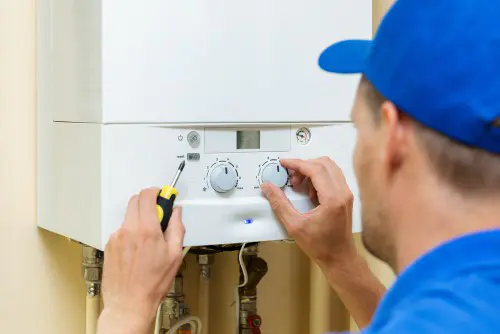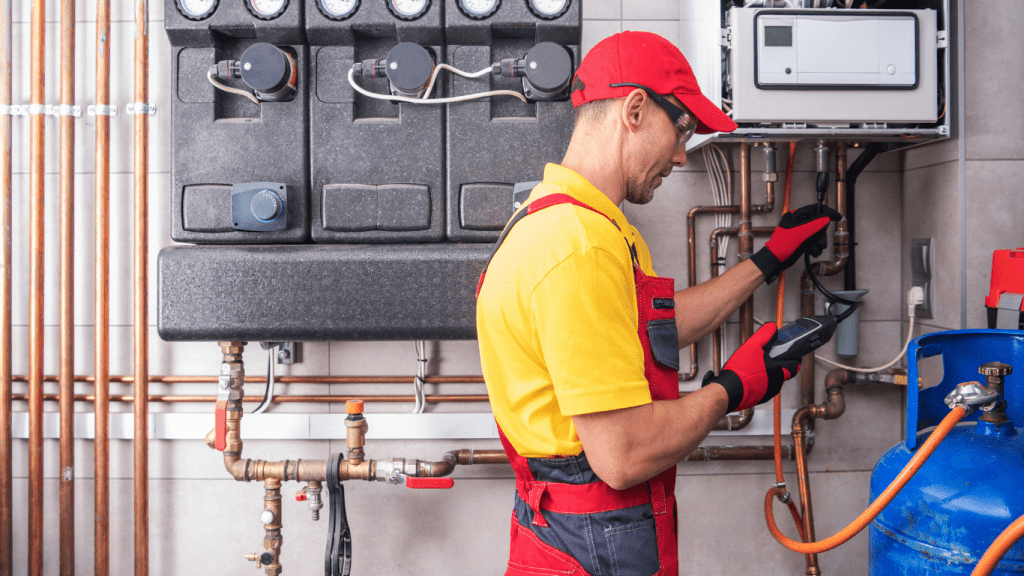You’ve probably heard about the importance of maintaining your boiler, but do you understand the significance of a Gas Safety Certificate? This document isn’t just another piece of paper; it’s your assurance that your boiler meets strict safety and efficiency standards. By ensuring your boiler is inspected annually by a certified engineer, you’re not only complying with the law but also safeguarding your home from potential hazards. Now, consider the consequences of neglecting this crucial requirement—ranging from legal repercussions to personal safety risks. Wouldn’t you want to know more about how to avoid these pitfalls and ensure your boiler’s compliance, Let’s understand The Importance of a Gas Safety Certificate for Boilers.
Legal Requirements for Certification
In many regions, you must obtain a gas safety certificate for your boiler to comply with legal standards. This certification process is vital not only for legal compliance but also to ensure your system operates safely and efficiently.

You’ll need to engage a certified engineer who’s registered with an approved body. During the certification, the engineer assesses the installation, maintenance, and functionality of your boiler system to ensure it meets specific safety regulations.
Documentation of this certification should be kept as proof of compliance and for future reference. Failure to possess this certificate can result in penalties, including fines and legal actions.
Understanding these requirements allows you to maintain your boiler within the regulatory framework, ensuring safety and legal conformity.
Understanding Gas Safety Inspections
Understanding gas safety inspections goes beyond merely adhering to legal mandates; it’s about actively ensuring the ongoing safety and efficiency of your boiler system.
During these inspections, technicians employ advanced techniques for gas leak detection, meticulously checking connections, valves, and hoses for any signs of leakage. This process is critical as even minor leaks can lead to significant hazards.
Equally important is assessing boiler efficiency. Inspectors analyze the boiler’s combustion process, ensuring it achieves maximum energy output with minimal waste. This not only enhances safety but also optimizes fuel consumption, reducing your energy bills and environmental impact.
Mastery of these inspections requires recognizing subtle signs that might indicate inefficiencies or emerging safety issues, ensuring your system operates at peak performance.
Benefits of Regular Boiler Checks
Regular boiler checks offer several indispensable benefits, ensuring your heating system remains both safe and efficient. Adhering to safety standards through consistent boiler maintenance isn’t just a homeowner’s responsibility; it’s a strategic approach to managing your heating system.
Here are the key advantages:
- Enhanced Safety: Regular checks minimize the risk of dangerous malfunctions.
- Increased Energy Efficiency: Proper maintenance ensures optimal operation, reducing energy consumption.
- Cost Savings: Early detection of issues prevents costly repairs and extends boiler life.
- Compliance with Legal Requirements: Keeps you aligned with local safety regulations.
- Optimized Service Frequency: Tailor’s maintenance schedules to the specific needs of your system, preventing over-servicing or neglect.
Staying proactive with your boiler maintenance supports both your budget and safety.
Identifying Risks in Gas Appliances
While regular maintenance of your boiler is fundamental to its proper function, it’s equally important to recognize the specific risks associated with gas appliances. You need to be aware of gas leaks, a primary risk that can lead to catastrophic outcomes if unchecked. Proper appliance maintenance enhances combustion efficiency, crucial for optimal performance and safety.

| Risk Factor | Impact & Mitigation Strategy |
|---|---|
| Gas Leaks | Install detectors, routine inspections |
| Inefficient Combustion | Regular servicing for better efficiency |
| Non-compliance with Standards | Ensure adherence to the latest installation standards |
Understanding these risks and implementing stringent safety regulations, emergency procedures, and user education programs are vital. These practices not only extend the equipment’s lifespan but also ensure a safer environment. Always prioritize installation standards and routine checks.
Steps to Obtain a Gas Certificate
Securing a gas safety certificate is a crucial step in ensuring the safety and compliance of your boiler system. To navigate through the application process effectively, you should follow these detailed steps:
- Review Requirements: Familiarize yourself with local regulations and standards that detail the necessity for certification.
- Document Preparation: Gather all necessary documentation of your boiler system, including installation details and previous maintenance records.
- Select a Certification Body: Choose an authorized body recognized for issuing gas safety certificates.
- Schedule an Inspection: Arrange for a thorough inspection by a certified professional to assess the safety and operation of your boiler.
- Follow-up: Ensure the certification validity by scheduling periodic reviews and maintaining compliance with any updated regulations.
Choosing a Qualified Gas Engineer
Selecting a qualified gas engineer is essential for ensuring your boiler’s safety and compliance. When choosing a professional, you must prioritize qualifications verification. Always confirm that the engineer is registered with a recognized gas safety authority. This certification indicates a rigorous assessment of their technical competence and adherence to safety standards.
Additionally, consider the engineer’s experience. An experienced engineer not only understands complex boiler systems but can also diagnose and resolve issues more efficiently.
Ask for references or case studies that showcase their expertise and successful interventions in similar scenarios. By carefully evaluating both qualifications and past performance, you’ll ensure that your boiler system operates safely and efficiently, safeguarding your home and complying with legal requirements.
Impact on Property Insurance
Obtaining a gas safety certificate for your boiler can significantly influence your property insurance rates and coverage.
This certificate serves as a critical component in your insurer’s risk assessment process, potentially decreasing your premium due to demonstrated safety compliance.
Here’s how it impacts your insurance:
- Reduced Premiums: Demonstrating compliance lowers perceived risks, possibly reducing premiums.
- Enhanced Coverage Options: Certificates may unlock additional coverage options otherwise unavailable.
- Smoother Claims Process: Compliance can lead to fewer complications in insurance claims.
- Fulfillment of Policy Requirements: Many insurers require up-to-date safety certificates.
- Minimized Liability Risks: Proper certification helps mitigate potential liability in accidents, enhancing your liability coverage.
Always ensure your certificate is current to maintain these benefits.
Common Issues and Solutions
While maintaining your gas safety certificate fosters better insurance terms, it’s equally important to address the common issues that can arise with boiler maintenance to ensure ongoing compliance and safety.
You’ll often encounter gas leaks, a critical problem that demands immediate attention. To detect these, monitor for a sulfur-like odor and use gas detectors routinely. Regular boiler maintenance is crucial; ensure that the system’s seals are intact and the connections are tight to prevent any potential leakages.
Additionally, corrosion within the boiler system can compromise its integrity. Conduct annual inspections to identify any signs of rust or deterioration, which can lead to leaks or inefficiencies.
Address these issues promptly by replacing affected components to maintain both safety and boiler efficiency.
Conclusion
You must secure a Gas Safety Certificate for your boiler. This not only ensures compliance with legal mandates but also safeguards your property and occupants from potential hazards. Regular inspections by a qualified gas engineer can identify risks early, enhancing safety and operational efficiency. Don’t overlook this critical requirement; it significantly impacts your insurance coverage and legal standing. Always choose a certified professional to maintain the integrity and safety of your gas installations.









